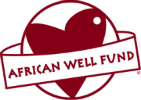By Devlin Smith
African Well Fund has raised money to fund projects in three African nations—Rwanda, Sierra Leone and Uganda—that will be completed in 2007. All of these projects will be implemented by AWF partner Africare. The funds for these projects were collected in 2006.
In Rwanda, Africare proposes to construct a well in the Nduba Sector in the compound of the Nduba Health Center, located about 40km east of Kigali and expected to benefit about 15,000 local residents and the health center. Currently, water for the area is gathered from a river about 1km away.
A second Rwandan well is proposed for the Ngala Health Sector, located in the Nyamagabe District. This well would be located about 30km east of Gikongoro and would benefit about 25,000 local residents and the health center. There is no nearby water point in this region.
The estimated implementation cost of these projects is $30,000.
In Sierra Leone, Africare is proposing the Nyeama Water Gravity Rehabilitation Project in the Kailahun District. The overall goal of the project is to improve access to water and sanitation for local residents, area schools and health care facilities. The area’s population is about 3,800, including about 300 children under the age of 5.
Water systems in the district were damaged during Sierra Leone’s civil war. Bullet holes and breakage points damaged the main pipe that carried water to the village. Africare proposes to repair or replace the damaged and leaking pipes.
The total cost for this project is $25,102.40.
In Uganda, Africare is proposing the construction and rebuilding of 15 wells that will serve the population of the Ntungamo District as part of a follow-up grant from AWF. This project will serve 6,000 community residents.
Through funds previously raised by AWF, 31 water sources have been constructed in the district, benefiting 12,400 residents.
The total cost of this project is $22,545.
Each of these projects will involve local residents who will be trained by Africare in building and maintenance. These projects will also help reduce incidences of water-borne illnesses, such as diarrhea. Other benefits, according to Africare, include business opportunities and more time to devote to agriculture and household maintenance.
Each project began late last year and is targeted for completion by the end of this year.
